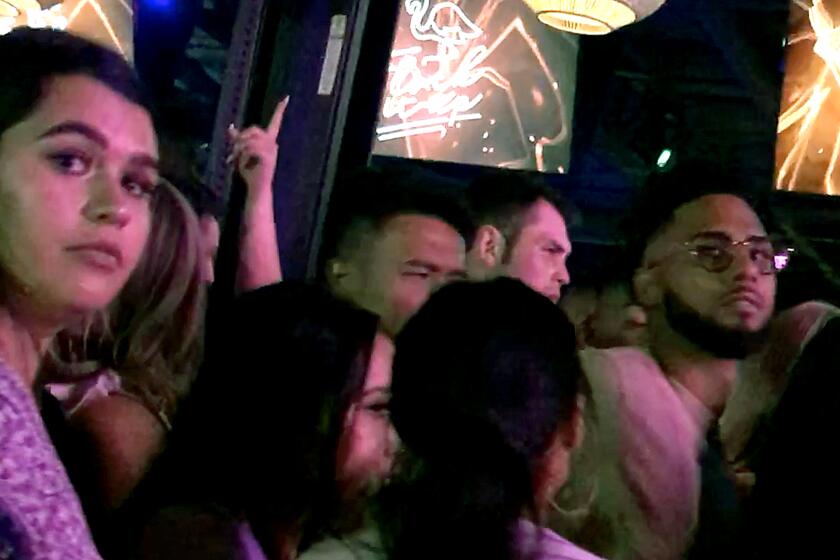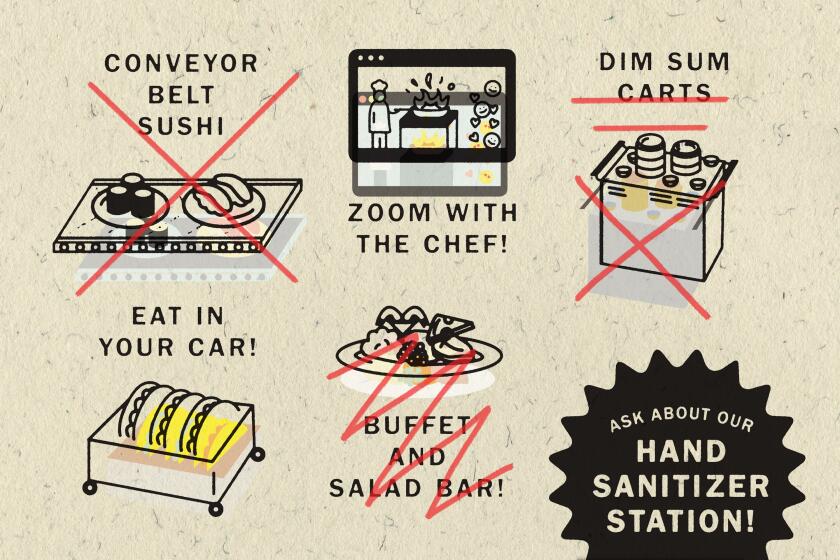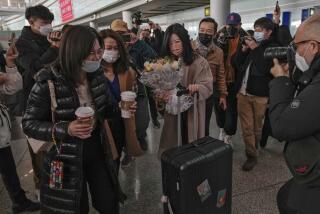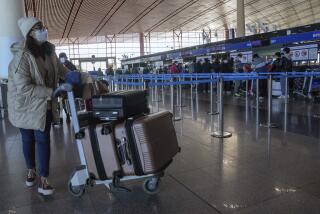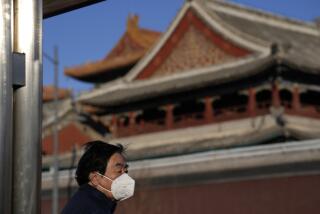These governments tamed COVID-19. They’re keeping social distancing in place
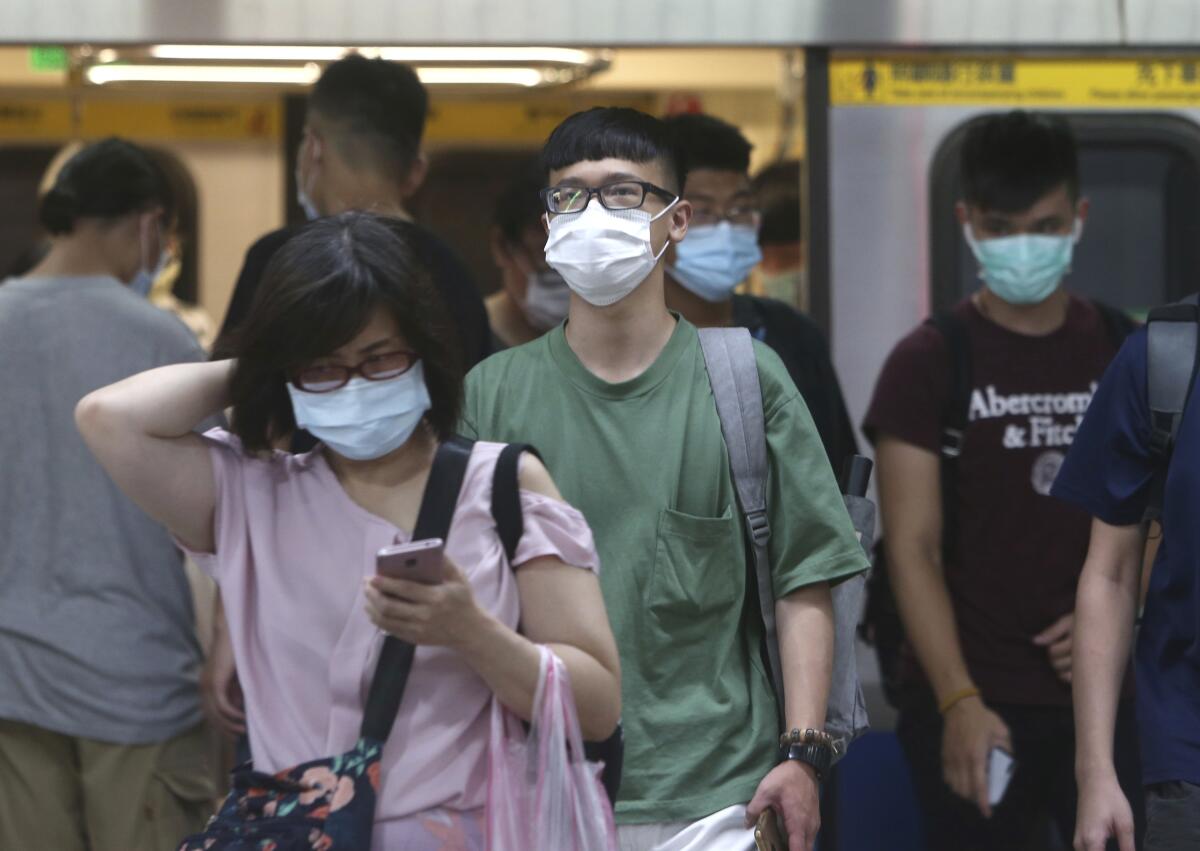
- Share via
TAIPEI, Taiwan — It was 91 degrees, and Hans Hsu, clad in shorts, sat on a bench waiting to catch the bus home, a surgical mask dangling from his arm. The face covering made him sweat, but without it he wouldn’t be allowed to board.
“Of course, it’s kind of hot, but it’s necessary,” said Hsu, a 51-year-old interior designer. “We have no control over how long the outbreak itself will last.”
In Taiwan, masks are required in order to ride public buses and trains. People in Hong Kong still have their temperatures scanned as they enter buildings. Macao’s freewheeling casinos are limiting table games to three players, and Singapore is capping the number of diners per table at five when restaurants reopen Friday.
Across Asia, governments that have brought the coronavirus under control are keeping many social distancing measures in place for the foreseeable future, urging residents to guard against a resurgence of the virus that is raging in other countries.
The risks became ominous this week as Beijing reported its first new local infections in months, prompting fresh neighborhood lockdowns, grounding flights and illustrating that the virus was far from tamed even in nations that had imposed severe restrictions.
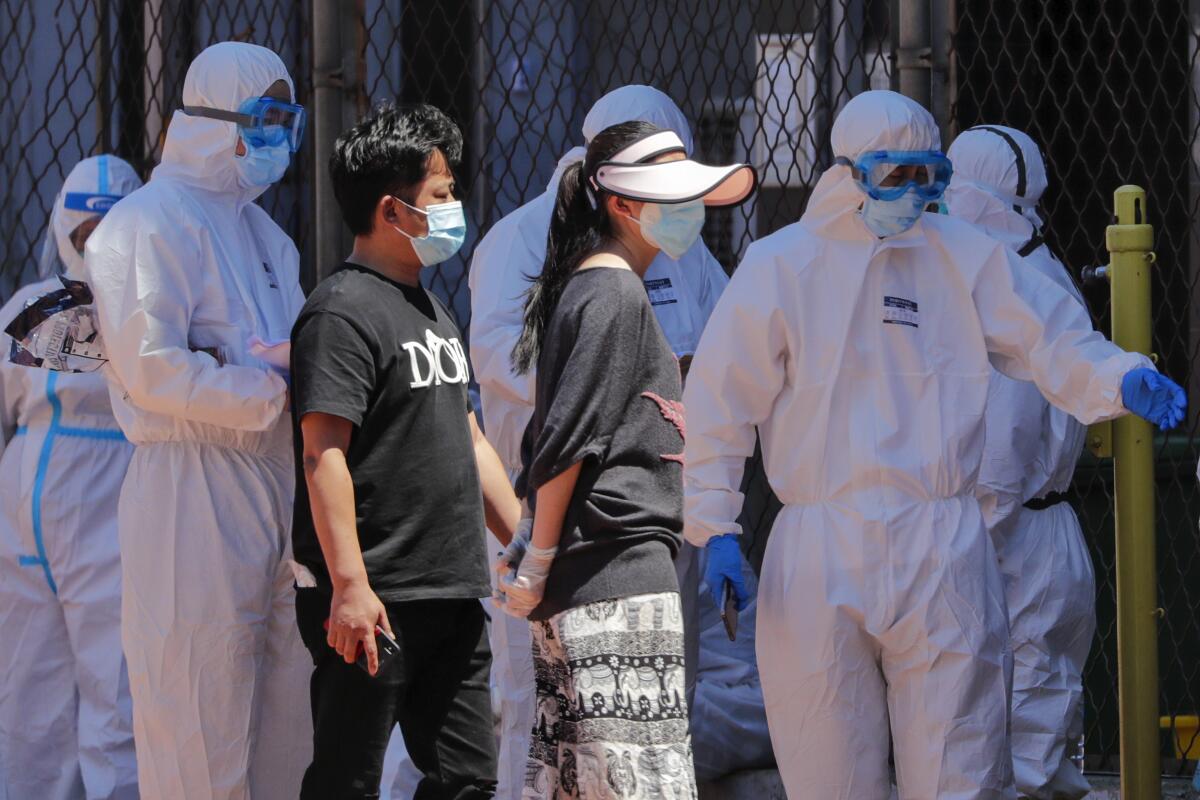
“It is critical that we continue to remain vigilant so as to protect ourselves and our loved ones,” Gan Kim Yong, co-chair of Singapore’s COVID-19 task force, said this week in announcing the reopening of most businesses after 10 weeks of widespread closures.
The cautious approach adopted by many Asian governments — which have close travel and economic links to China and a history of battling respiratory disease outbreaks such as SARS — stands in contrast to the helter-skelter reopening of economies across much of the United States.
Although the virus continues to kill hundreds of Americans daily, many states and counties are quickly doing away with social distancing restrictions. Some officials have said they won’t even require residents to wear face coverings in public.
Trump bet that as states reopen, the economy would come roaring back and voters would forget his administration’s screwups. It looks like he’s losing that gamble big time.
Not so in Asia. Masks were common here long before COVID-19, often worn by sick people to keep from spreading germs, and many countries and territories are signaling they may remain mandatory until a vaccine is developed.
Taiwan, which has fewer than 450 coronavirus cases, issued an order this month that public transit passengers must wear masks unless they can keep five feet away from others, unlikely on crowded buses and trains. Singapore also requires masks outdoors, even for children.
In Hong Kong, which has sharply reduced new infections over the last two months, residents have adopted near universal mask use on their own. The move was in defiance of a government that banned face coverings last year amid protests over Chinese rule, and initially denied that masks were needed to quash the coronavirus.
“There were quite a few foreign expatriates living here who didn’t adapt to masks quickly,” said Susan Bamber, a 60-year-old Australian retiree who’s lived a quarter-century in Hong Kong. “I can remember just sort of forgetting and being on the taxi rank and the taxi wouldn’t take me and then I’d realize, ‘Oh, it’s because I don’t have a mask on.’”
Now Bamber keeps masks by her door and in her handbag, and expects that fellow residents will wear masks long after it’s seen as necessary.
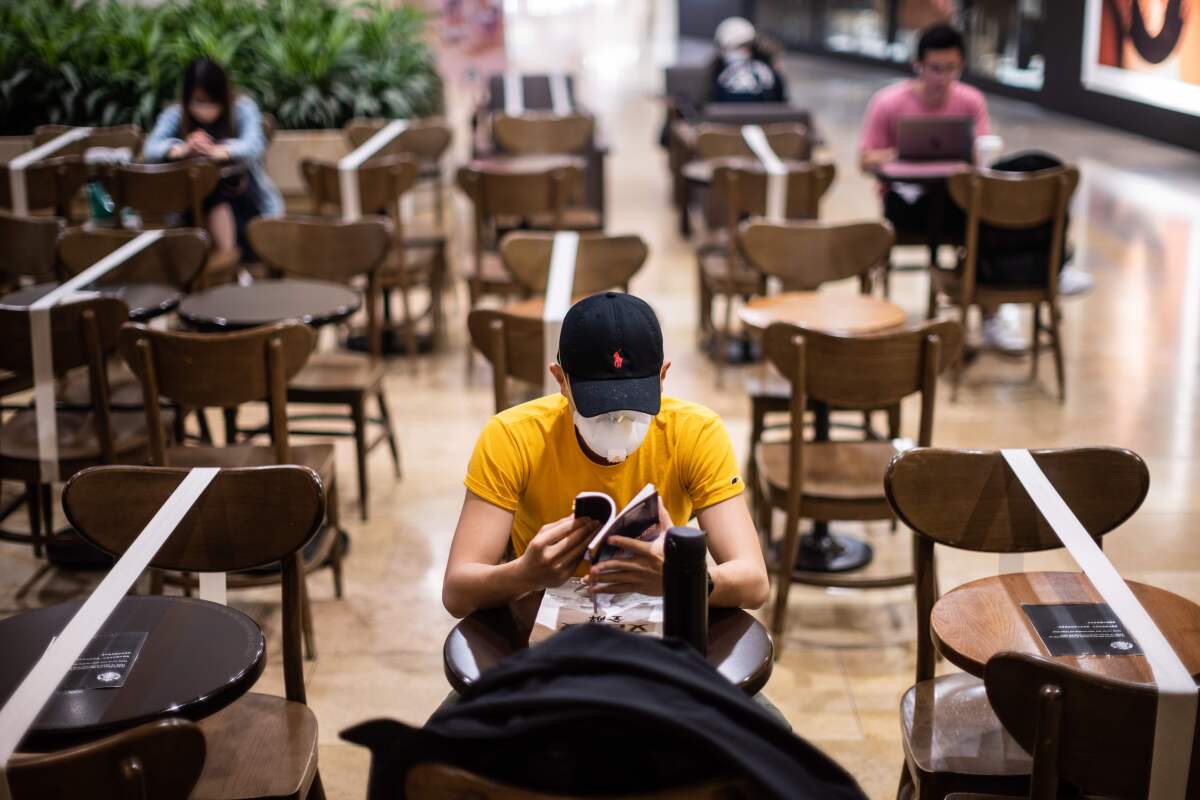
Office workers tend to remove their masks while at their desks, but put them back on when moving between floors. Sweat is a nuisance in the tropical heat, but Adam Wielowieyski, a 40-year-old Briton who works at the Hong Kong stock exchange, said “the biggest thing is activating my iPhone. You can’t use face recognition.”
Outside of Hong Kong’s financial center, working from home remains common and is even encouraged for white-collar employees across the region. Even in Japan, known for its intense office culture, business leaders have called on companies to introduce four-day workweeks, staggered hours and work-from-home options to reduce the spread of the virus.
Much like the restrictions in place when Las Vegas reopened this month, casinos in Macao, Asia’s gambling center, now limit table games to three players and fill slot machine zones to half of capacity. The tiny, Chinese-administered territory has reported just 45 coronavirus cases, and casino operators are happy to see business pick up after a 15-day shutdown in February.
Pro baseball has resumed in Taiwan and South Korea, with spectators strictly limited and socially distanced. It will take longer for restaurants and nightlife to regain pre-pandemic rhythms.
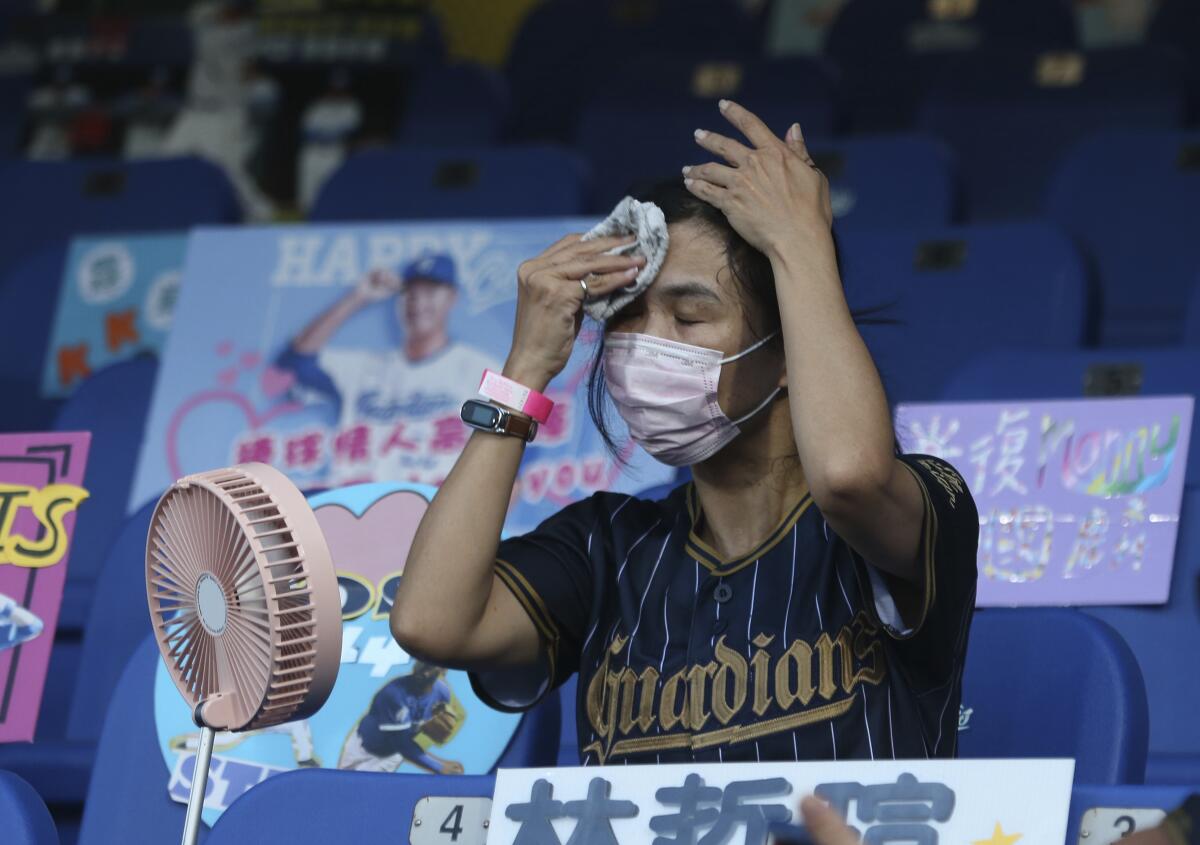
In Taiwan, eateries have erected plastic barriers on shared tables to keep patrons apart. Pubs and bars in Hong Kong can operate only half-full, and health officials have urged people to eat out less — a difficult prospect for some Asian societies to tolerate for too long.
“Chinese socialize by eating together, like over Lunar New Year, people sit around a round table to eat a family meal,” said Huang Ching-tai, an infectious disease doctor at Chang Gung Memorial Hospital near Taipei. “You can’t split off into two tables.”
The Taiwanese government will continually review the rules to balance public support and the need to tamp down the COVID-19 threat, Huang said.
For many, being allowed to again eat in public is a welcome small step away from where we are right now.
Technology is also playing a role — from South Korea, where partiers must scan an electronic QR code on their cellphones to enter nightclubs, to Singapore, which is requiring many foreign workers to install a government-developed contact tracing app.
More than 95% of Singapore’s 41,000-plus COVID-19 infections — among the highest totals in Asia — were among low-paid migrant workers, most of whom live in crowded dormitories. Authorities have said construction workers and those living in dorms are required to download the app, known as TraceTogether, which uses a Bluetooth signal to detect if the user has come close to an infected person.
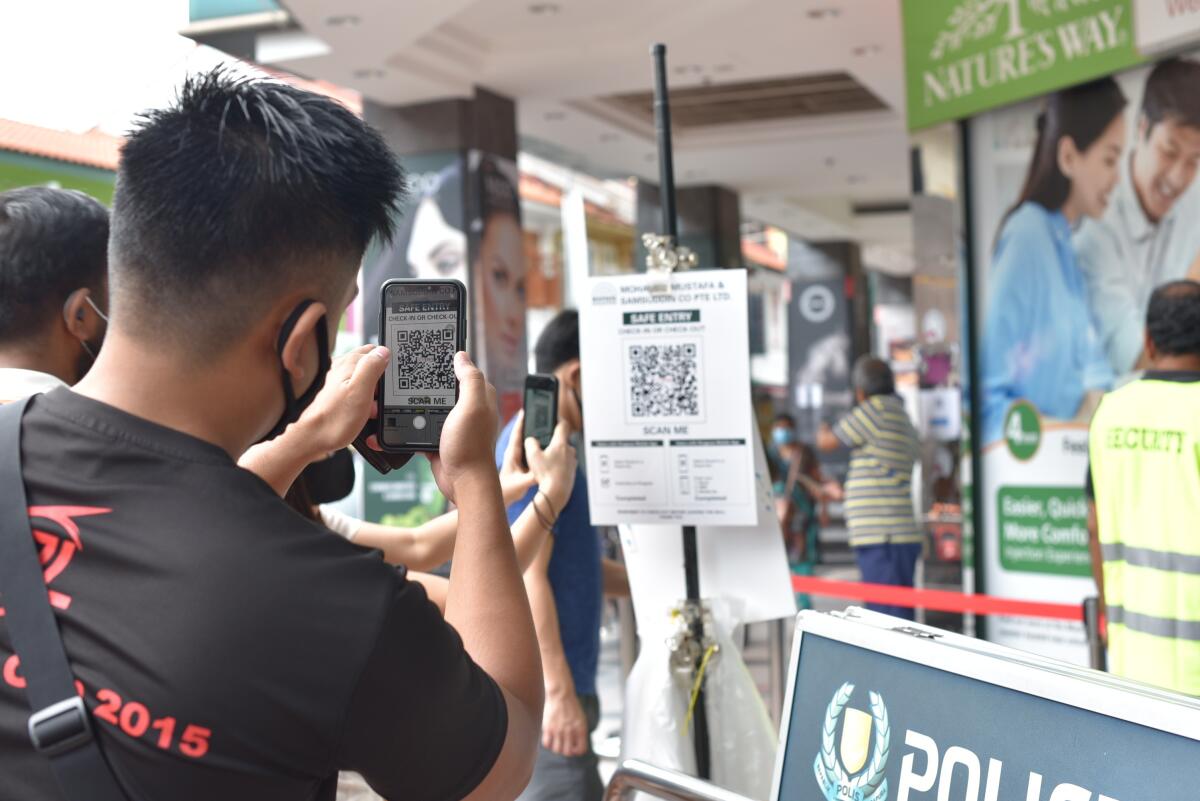
Singaporean officials have said they are developing a new, wearable tracing device that could be distributed to all 5.7 million residents. Although the government says it doesn’t collect user data, some citizens have pushed back against making such a device mandatory, arguing it could infringe on privacy and be vulnerable to hackers.
An online petition opposing the wearable device as “a form of movement monitoring on each of us at all times and places” has collected more than 50,000 signatures, a rare sign of public pushback in a tidy city-state where the ruling party enjoys overwhelming support.
“What if a vaccine never comes — will we be expected to wear this for an indefinite period of time?” the petition’s author, 37-year-old Wilson Low, said in an interview. “I think a lot of us are willing to give the government the benefit of the doubt in the way they have managed this crisis. But I think we should reject any mandatory use, and even if it’s not mandatory, we need to be open about what such a device really means.”
Elsewhere, there are signs that some social restrictions may take hold for good. Taiwan recently lifted a ban on food and drinks in railway cars, but few passengers eat anymore for fear their food would become contaminated, said Mac Huang, a Taipei middle school teacher who rides the train four times a week.
“I still don’t dare to do it,” Huang said. “Only after I get off.”
Special correspondent Jennings reported from Taipei and Times staff writer Bengali from Singapore.
More to Read
Sign up for Essential California
The most important California stories and recommendations in your inbox every morning.
You may occasionally receive promotional content from the Los Angeles Times.
